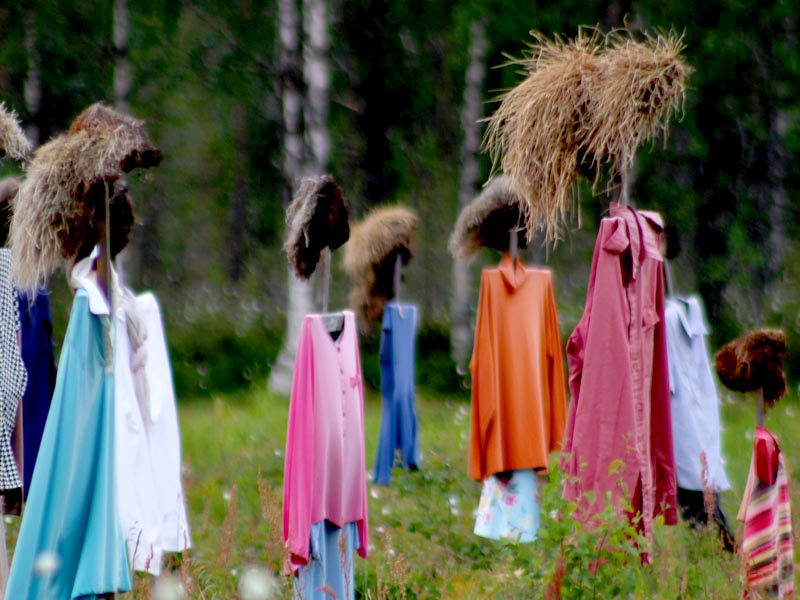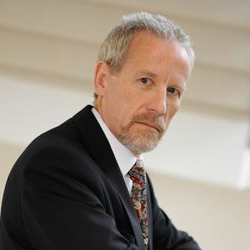
by Keith Grint
- 21 March 2023
Share:
One of the benefits of writing about leadership in a comparative framework is that it provides a perspective that illuminates similarities and differences across contending frameworks and case studies. One of the alarming aspects of the same method is the recurrence of patterns across time and space, especially those used by the leaders of countries or organizations in defense of what many might see as the indefensible. Or, as Oscar Wilde (1893/2003) has the character Lord Illingworth say in his play A Woman of No Importance (with regards to fox hunting), it was “the English country gentleman galloping after a fox: the unspeakable in full pursuit of the inedible.”
We have just passed the first anniversary of the Russian invasion of Ukraine, but many may remember the Russian assurances given on the eve of the event that no such invasion was planned. Indeed, many of the Russian troops and commanders seemed to have been kept in the dark by the Kremlin to the point where insufficient attention was paid to the logistical aspects of the forthcoming war and that, in turn, inhibited the early Russian advance. This is the first rhetorical trope in defense of the indefensible: The crime you are accusing me of does not exist. It has been commonly used by a whole panoply of privileged leaders, including Hitler’s denial of attacks upon Jews, American political leaders’ denials concerning racism in the allegedly egalitarian U.S. military in World War II, and contemporary British political leaders countering claims about the legitimacy of refugees trying to cross the channel in small boats from France.
The second rhetorical trope often occurs when the first one fails: OK, the thing you talk about does exist, but it’s entirely natural, therefore inevitable, so there’s nothing we can do about it. This has a very long history, going back, for example, at least as far as Aristotle (350 BCE/2009) who insisted in the fourth century BCE that slavery was both natural and inevitable. After all, as he said in his Politics (I, 2-5), “That some should rule and others be ruled is a thing not only necessary, but expedient; from the hour of their birth, some are marked out for subjection, others for rule… Natural slaves had incomplete souls and had limited capacity for thought; indeed, without slavery natural slaves would be incapable of living.” Over two millennia later, the British King, William IV, only reluctantly signed the bill to abolish slavery in the British empire in 1833 after his slave-holding Secretary of War, Edward Ellice, insisted that it would not work — because free Africans were incapable of working without the “beneficial” coercion of slavery. We can hear similar claims from Putin about the requirement to take over Ukraine because the country simply cannot function as an independent state, or indeed from the UK’s ex-Prime Minister Boris Johnson in 2015 about the “natural” warming of the planet which had provoked amongst the chattering classes a “primitive fear that the present ambient warm weather is somehow caused by humanity; and that fear — as far as I understand the science — is equally without foundation.”
The third rhetorical trope is to suggest that, OK, whatever the issue is, it does exist and it might not be inevitable, but it most certainly benefits us (well at least me). Thus, on 31 May 1833 British slave holders and merchants organized a meeting of 1,500 people to protest the abolition of slavery. Earl Saint Vincent, Earl of Harewood, and the Marquis of Sligo all compared the abolitionists to French revolutionaries and decried any attempt to deprive many small slave holding “widows and orphans of their meagre income.” When slavery was abolished in the British empire, 47,000 British slave holders received £20 million compensation (40% of the government budget in 1834); the enslaved received nothing. One hundred years later, as another example, the founding editor of The Aeroplane magazine, Charles Grey, was fighting a rear-guard action at the prospect of British women flying aircraft during the next war, and reminded his readers that there were good reasons for this to be prevented.
So many of them [women] insist on wanting to do jobs which they were quite incapable of doing. The menace is the woman who thinks she ought to be flying a high-speed bomber when she really has not the intelligence to scrub the floor of a hospital properly, or who wants to nose round as an Air Raid Warden and yet can’t cook her husband’s dinner. (Quoted in Curtis, 1985, p. 12)
Alas for Grey, he failed, but there is always another gambit to use: the fourth rhetorical trope. This one accepts that whatever the issue is, it does exist, it might not be inevitable, and furthermore, while the benefits do seem grossly asymmetric, surely preference to restrain the problem must be given to those at home, rather than those abroad. This defense of an exploitative relationship is captured in Sir William Beechey’s 1793 portrait of Sir Francis Ford’s Children Giving a Coin to a Beggar Boy which shows two aristocratic children giving a beggar boy a coin. (The picture can be seen at the Tate Gallery in London and is also available online.) It represents a common theme of the time, namely that the poor at home in Britain were far worse off than the enslaved people in British colonies (who had their food and lodgings provided by the “generous” slave holder). In this sense, the focus for the bleeding-hearted liberal should not be on the “wicked slave holder” but the state of Britain. Charles Dickens called this “telescopic philanthropy” and captured his own beliefs in his characterization of Mrs. Jellyby in Bleak House (1852-53/2017) who spent most of her time supporting projects that saved African children but simultaneously ignored her own family and especially her husband. This, of course, feeds directly into the current concerns of some in the West who posit that providing Ukraine with funds and weapons to defend themselves against the Russians exposes us to much greater dangers.
Self-evidently this rhetorical trope does not always work. After all, some things “abroad” are actually critical to several aspects of being safe “at home,” so where next for our rhetorical leader? Well, the fifth trope is to accept defeat but then seek to delay it for as long as possible. This was a very common response to those demanding the end of slavery. Even many of those within the British Anti-Slavery Society were clear that ending slavery did not mean simply setting the enslaved free immediately; they would need to be “civilized” first. For that reason, the process had to be one of evolution, not revolution, and the judges for when the time was right for liberation would, naturally, be the slave holders, not the enslaved. We can see this trope very clearly in the efforts of most governments at the various climate change jamborees, where targets are set for some years hence whilst all the time both carbon and the Earth’s temperature rise.
When delay fails there’s always the sixth trope: Othering. In this format all the objections to the nefarious practices raised before have been accepted, but this fatalist trope remains: If I don’t do it, some other person will. Locke’s Second Treatise on Civil Government (1689/1986) was used by Britain, France, and Spain to explain why usurping the land occupied by Indigenous peoples in the Americas was a legitimate action. Even though “men” were born free, Native peoples had no individual property rights over the land — because they did not cultivate it, that is, mix their labor with it — and thus could not have any legitimate claim over it. This was doubly ironic given that the only people who actually mixed their labor with the land on slave plantations were enslaved people, not slave holders. In effect, since the Native peoples had no government recognized by colonists and since (using Locke) government exists to protect property, the land could legitimately be sequestered. And all this on the grounds that if the British didn’t do it then the French or Spanish would and vice versa. Or as the Daily Mail columnist Richard Littlejohn noted on 21 October 2021: “Why should we (the UK) have to lead the word in decarbonisation, when the UK is responsible for just one per cent of the world’s emissions, and countries like China are opening hundreds of coal-fired power stations with abandon? The rest of the world is either moving more slowly or doing absolutely nothing other than paying lip service to ‘net zero.’”
If Othering doesn’t persuade people, then try the seventh trope, projection: accusing the other side of things you’ve just done or are about to do. This is a common element of sociopaths and narcissists and is marvelous at winding people up. For example, the whirlwind ex-UK Prime Minister Liz Truss accused most of her many opponents of being a member of the “Anti-Growth Coalition” when really the actions of her and her predecessor have reduced British economic growth drastically. Similarly, Putin accuses Ukrainians of invading Russia when all the combat has been on Ukrainian soil, and Trump accused the Democrats of being anti-democratic, just as he provoked an assault upon democracy on 6 January 2021.
A variant of Othering is “deadcatting” — the eighth trope and a rhetorical distraction technique to keep the audience from focusing on the important issue at hand. Thus, in the UK we currently have a political row about a small number of migrants arriving in boats — when the proposed solutions have little chance of working — but then that’s the point. If the issue can be kept in the public view for long enough, then perhaps the voters will forget about the fact that the cost of living crisis is forcing people to choose between heating and eating and worry about the refugee “invasion” instead (even if the UK is desperately short of labour, and is apparently happy to take a large number of (White) Ukrainian refugees, it has taken fewer refugees than any other major European nation).
This is but part of a wider effort about the value ascribed to being “woke” which, in itself, is just one element in a wider campaign to move the focus from economic to cultural concerns. Within this context one of the most common rhetorical tropes is our ninth – the “straw person,” a logical fallacy that seeks to defray a counter-argument by using an extreme version that is much easier to demolish than the original. For instance, in the UK recently an almighty political row broke out when the Home Secretary, Suella Braverman — the source of the “invasion” line above — was accused by the sports commentator Gary Lineker in a tweet of constructing “an immeasurably cruel policy directed at the most vulnerable people in language that is not dissimilar to that used by Germany in the 30s.” The Home Secretary’s response to this was to say that her policies “did not come close to what happened in the Holocaust.” Now the Holocaust, the straw person in this example, occurred in the 40s not the 30s, but it was the language of the 30s that prepared the way for the Holocaust, so here we have an attempt to undermine the resistance by constructing an exaggerated target.
And finally, when all else fails, there’s always the tenth rhetorical trope: Romantic Nostalgia. MAGA, Brexit, and Russia’s invasion of Ukraine are, in their different ways, all cases of nations that have failed to adapt to life without an empire or a preferable past and so try to resurrect past glories. Ironically, in doing so they are, to differing degrees, ruining their futures. Hence, Boris Johnson’s Brexit, premised on unleashing “Global Britain” upon the world, has seen the country’s economy so damaged that it is the only one of the G7 to remain below its pre-pandemic level. Finally, let us go back to Russia one last time to meet a woman called Olga from Belgorod who said, in response to questions from the BBC reporter Steve Rosenberg (2023) about the nature of the war in Ukraine:
I return us to the Great Patriotic War, which was a time of great sacrifice. There are always sacrifices being made. When our men go off to fight, they know they may be killed. Russia didn’t provoke this war. A Russian will give you the shirt off his back. Russia didn’t attack Ukraine. Russians are peace-loving and generous.
Whatever.
References
Aristotle. (2009). The Politics. Oxford University Press. (Original work published 350 BCE)
Curtis, L. (1985). The Forgotten Pilots: A Story of the Air Transport Auxiliary 1939-45.
Nelson and Saunders.
Dickens, C. (2017). Bleak House. Dover Publications. (Original work published 1852-1853)
Johnson, B. (2015, December 20). I Can’t Stand This December Heat, but It Has Nothing to Do With Global Warming. The Telegraph. https://www.telegraph.co.uk/news/weather/12060976/I-cant-stand-this-December-heat-but-it-has-nothing-to-do-with-global-warming.html
Lineker, G. [@GaryLineker]. (2023, March 7). There is no huge influx. We take far fewer refugees than other major European countries. This is just an immeasurably [Tweet]. Twitter. https://twitter.com/GaryLineker/status/1633111662352891908
Littlejohn, R. (2021, October 21). It’s Boris Johnson’s Next Jolly Green Jape… Bring Back the Woolly Mammoths! DailyMail.com https://www.dailymail.co.uk/debate/article-10117927/RICHARD-LITTLEJOHN-Boris-Johnsons-Jolly-Green-Jape-bring-woolly-mammoths.html
Locke, J. (1986). Second Treatise on Civil Government. Prometheus. (Original work published 1689)
Rosenberg, S. (2023, February 10). Ukraine War: Belgorod Locals Live in Fear but Won’t Blame Putin. BBC News. https://www.bbc.com/news/world-europe-64543618
Wild, O. (2003) A Woman of No Importance. Collins. (Original work published 1893)
Pulled quote.
Article text.

Keith Grint is Professor Emeritus at Warwick University. He has held Chairs at Cranfield University and Lancaster University and was Director of Research at the Saïd Business School, Oxford University. He is a Fellow of the International Leadership Association (ILA) and Professorial Fellow of the Australian Institute of Police Management (AIPM). He is also a founding co-editor with David Collinson of the journal Leadership, and co-founder of the International Studying Leadership Conference. He received ILA’s Lifetime Achievement Award in 2018. His books include The Arts of Leadership (2000); Organizational Leadership (2005); Leadership: Limits and Possibilities (2005); Leadership, Management & Command: Rethinking D-Day (2008); Leadership: A Very Short Introduction (2010); and Mutiny and Leadership (2021).

